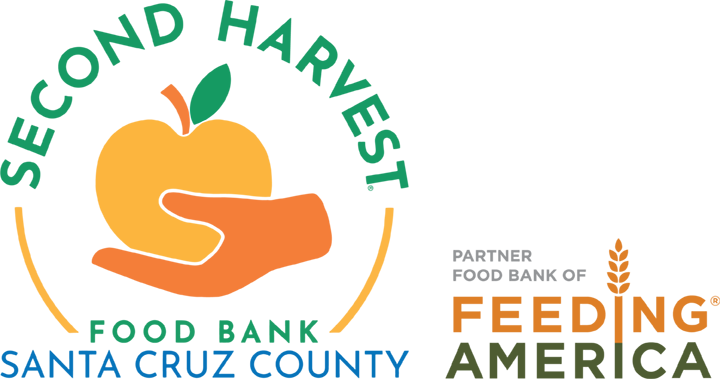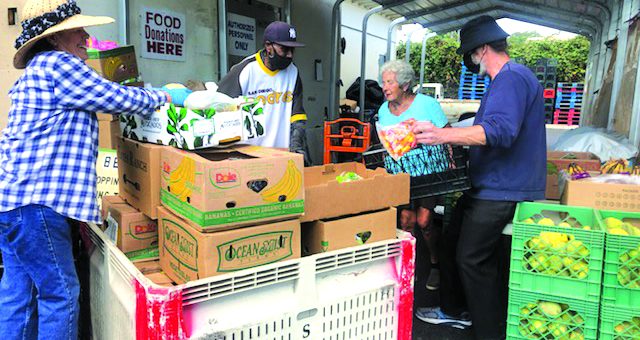Excerpt from The Pajaronian
by Tara Fatemi Walker
New law requires food waste reduction
September 23, 2022 – SANTA CRUZ COUNTY—Second Harvest Food Bank (SHFB) and its network of more than 70 partner agencies, including nonprofits such as food pantries, soup kitchens and shelters, work hard to combat food insecurity.
But because of new requirements mandated by Senate Bill 1383, they have needed to adapt over the last few months.
For years Santa Cruz County supermarkets and other vendors have been providing surplus edible food to Food Recovery Organizations (FROs), including The Food Bank’s member agencies, and SHFB has recently stepped up to provide increased support as they navigate SB 1383.
Bill details
SB 1383 aims to significantly reduce food waste and methane emissions. According to the California Department of Resources Recycling and Recovery (CalRecycle), it will have the equivalent effect of taking two million cars off the road for a year.
The climate change action bill originally passed in California in 2016. Its first requirements came into effect Jan. 1, imposing “…a new set of regulations and stipulations for commercial edible food generators (grocery stores, food distributors, food service providers, wholesale food vendors, etc.) and agencies receiving donations,” said SHFB Food Resource Manager Miles Klieman.
SB 1383 seeks to reduce the amount of organic waste in landfills, Klieman added, an important endeavor because organic waste is the most common type of material dumped.
That’s because decomposing food emits greenhouse gasses such as methane, which is 84 times as powerful as carbon dioxide. Released into our atmosphere, it can raise temperatures and lead to wildfires, droughts, and sea level rise.
CalRecycle seeks to decrease organic waste disposal by 75% by 2025.
Food that is redirected to the community stays out of landfills, Klieman said, adding that CalRecycle has set the goal of a 20% edible food recovery increase by 2025.
“This is the role of FROs like SHFB partner agencies,” he said.
Food Bank assists
To help the Santa Cruz County community, SHFB is focusing on California’s new edible food recovery program, which requires that commercial edible food generators donate as much of their surplus edible food as possible.
This means that all the food that stores and other food businesses normally throw away because of imperfections, such as cosmetic issues or impending expiration dates, must get donated instead of wasted, Klieman said.
SHFB has been working with the City of Watsonville, City of Santa Cruz, City of Scotts Valley, City of Capitola and unincorporated Santa Cruz County, all of whom have worked to reach out to donors and FROs, Klieman said.
Using data collected from SHFB and its partner agencies, local jurisdictions are completing their first edible food recovery report, due Oct. 1, which will cover the total amount of edible food recovered between Jan. 1 and June 30.
SHFB staff members have also visited partner agencies and donors to discuss SB 1383 and its new implications.
Members of SHFB’s Agency Network Team usually accompany Klieman to partner agency sites, where they meet with food program directors to communicate new requirements and learn how they can best support their operations.
Grey Bears is one of these agencies.
“The SHFB team has done a lot to assist us with the data side of the new law,” said Grey Bears Program Director Danielle Wong. “Grey Bears has been doing food recovery for almost 50 years, so we’re excited to see this new law enacted for all of California. It comes with a lot of data reporting which SFHB has been helping us with”.
By the community, for the community
Klieman says he has also witnessed commitment to fighting food insecurity at the grocery store and supermarket level.
“A store manager recounted that he and his family were reliant on food bank support while he was growing up,” Klieman said. “His experiences motivate him to maximize the donations his store can provide. Elsewhere, a department manager explained to me that he recently had to move to Gilroy because of rising rent, yet in the same conversation, he proposed an innovative way of making more food available for donation at his Santa Cruz County store.”
Ultimate goals
Supporters of the new law hope that SB 1383 will lead to a substantial increase in food available to support food security.
“Access to food is a basic human right,” Klieman said. “The reality that so many people are denied this right is mind-boggling, especially considering the exorbitant wealth held by a small sliver of our country’s population.”
For more information on SB 1383, visit CalRecycle.

